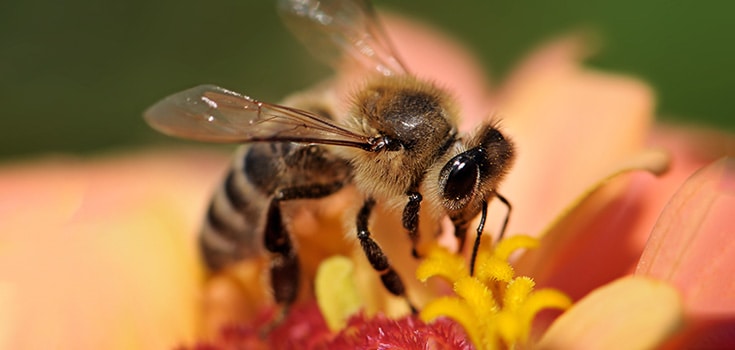Bees Hold Secret to Slowing Aging Process and ‘Reversing Time’

Scientists at Arizona State University released a report suggesting that bees can reverse the brain aging process and thereby live longer to collect food and protect hives. The findings shed light on how you could reap some of the same benefits through minor lifestyle changes.
The study was published in the scientific journal Experimental Gerontology and conducted by a team of researchers from ASU and the Norwegian University of Life Sciences. Led by associate professor Gro Amdam, the team tricked older bees tasked with foraging into social tasks within the hive by removing younger nurse bees and leaving the older foragers with the queen and larvae.
Although hive activity was less efficient for a time, 50 percent of the older bees assigned new social jobs showed improved learning after 10 days.
“We knew from previous research that when bees stay in the nest and take care of larvae—the bee babies—they remain mentally competent for as long as we observe them,” said Amdam.
Typically, after spending part of their lives nursing, older bees go on foraging missions outside the hive. These bees show signs of wear, age, and loss of brain function after only two weeks of foraging.
Related Read: Bee Products that Cure and Protect
Amdam’s team attributes their findings of slowing the aging process to the change in proteins in the bees’ brains. Two proteins, in particular, changed under their scrutiny: Prx6—found also in humans to protect against dementia—and a “chaperone” protein that protects other proteins from damage when tissues undergo cell-level stress.
Social Experiences, Active Mind and Body Key to Reverse Aging Process
More mammalian research must be conducted before the benefits of this research may be applied directly to humans and brain aging process, according to the research team.
Because people and bees share some of the same brain traits and proteins, however, “these proteins may be able to spontaneously respond to specific social experiences.”
Specifically, says Amdam, “changing how you deal with your surroundings is something we can do today to help brains stay younger.”
Keeping our brains and bodies active naturally regulates enzyme levels to slow aging and age-related dementia. We discussed late last year how exercise decelerates aging. This can include active sex lives for women, a preferred method for many rather than administration of drugs other researchers are concocting, which may take decades to develop.
Additional Sources:

Researchers are looking at the biochemical (and other) mechanisms involved in the changes that take place in the physiology of people who are practicing the 'Transcendental Meditation " technique , as there is evidence to demonstrate that regular practice leads to a significant slowing down of the 'normal' ageing process. It is exciting to ponder what is possible with our ever increasing ability to measure changes at increasingly more delicate levels of physiological functioning.